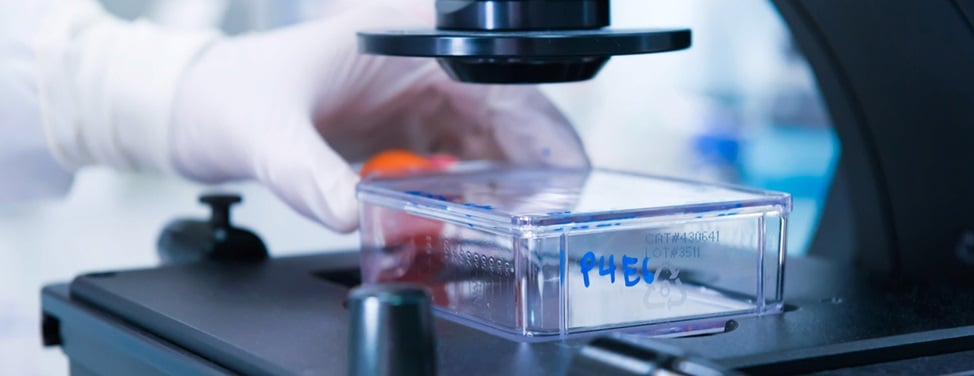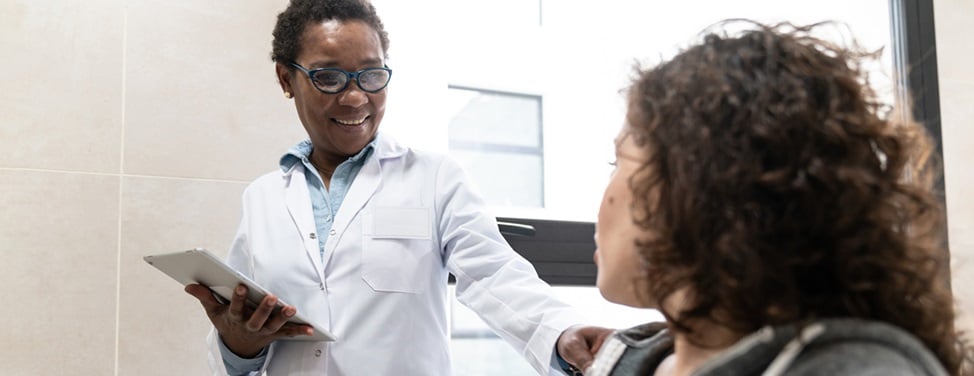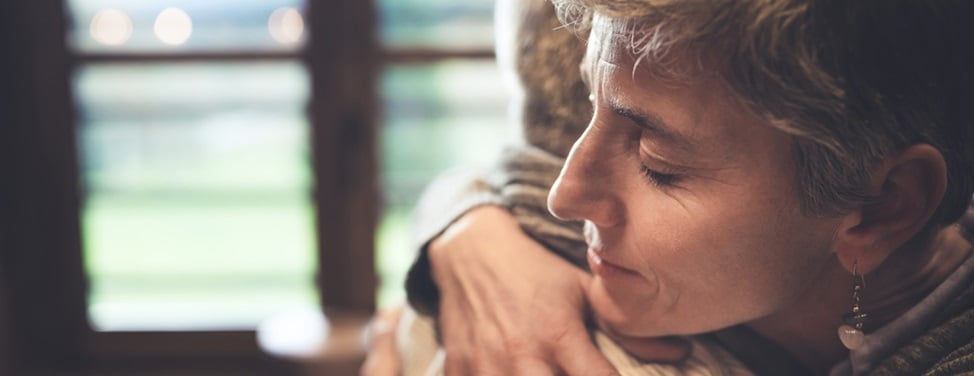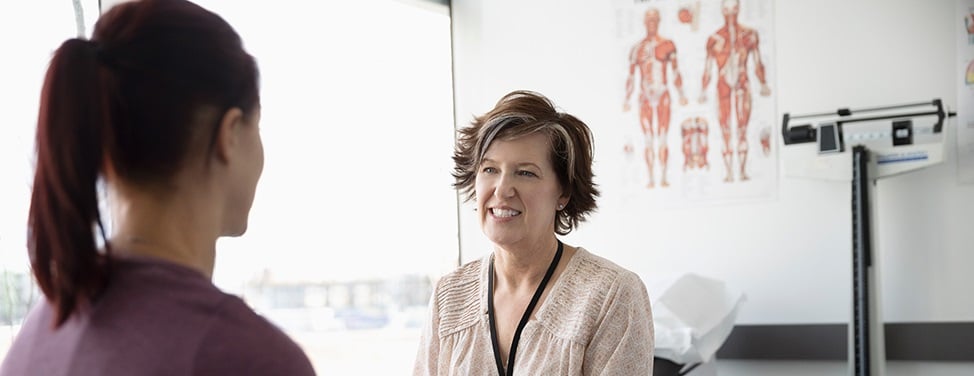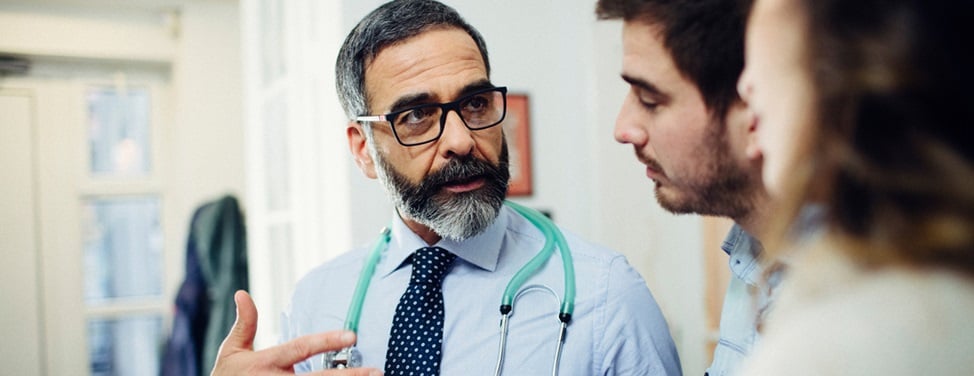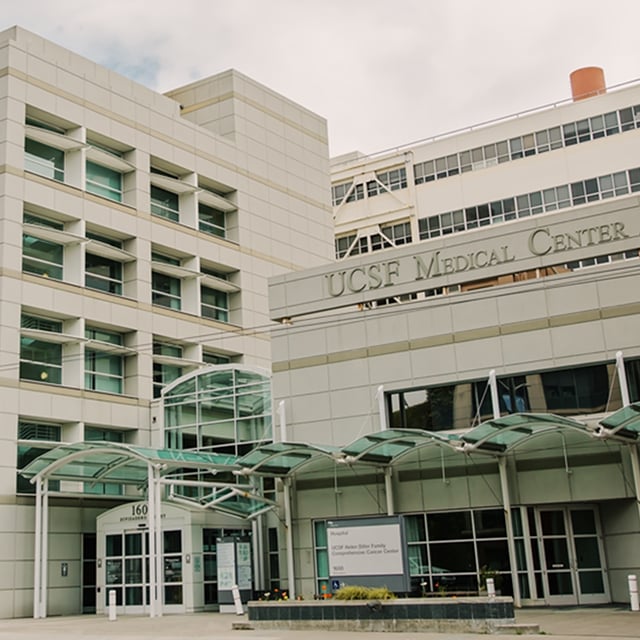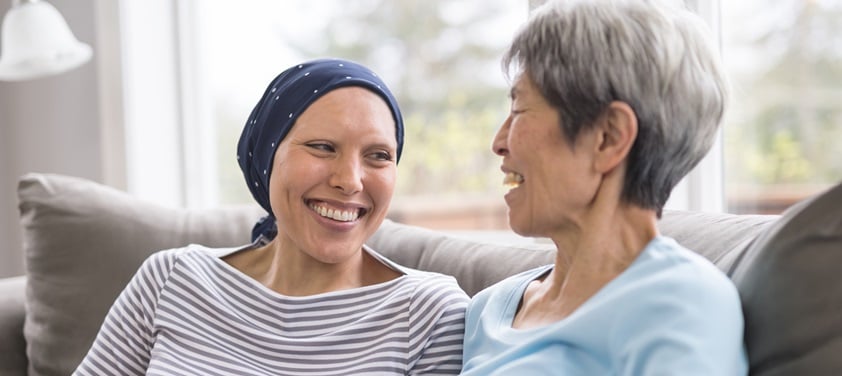Thymoma

Overview
What is thymoma?
Thymoma is a rare cancer that affects the thymus gland, an organ located between the lungs. The thymus supports the immune system's development during childhood and helps the body fight illness throughout a person's life.
A thymoma tumor originates in the epithelial cells that line the thymus. Epithelial cells are tightly packed cells that cover the surfaces of organs and other body parts. A thymoma tumor typically grows slowly and is unlikely to spread. In some cases, however, thymoma cancer cells spread to the lining of the heart and lungs or to other tissues throughout the body. Another cancer of the thymus, thymic carcinoma, tends to grow faster than thymoma and is more likely to metastasize (spread) to other parts of the body.
Our approach to thymoma
For patients with thymoma, UCSF's highly skilled thoracic oncologists and thoracic surgeons deliver state-of-the-art care. Their specialty is the thorax, the area of the body between the neck and the abdomen. This team can provide a precise diagnosis and a tailored treatment plan, from conventional surgery and chemotherapy to newer, cutting-edge therapies.
If surgery is needed to treat a thymoma tumor, we use minimally invasive techniques, such as robot-assisted surgery. This can decrease complications and improve results. To bolster patients' recovery and overall wellness, we also offer continued care and support services, such as support groups, nutrition education and mental health care.
Awards & recognition
-

Among the top hospitals in the nation
-
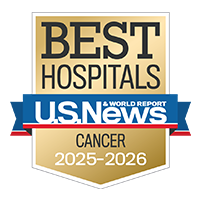
Best in California and No. 7 in the nation for cancer care
-
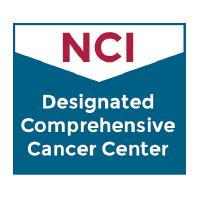
Designated comprehensive cancer center
Causes of thymoma
While the exact cause of thymoma is unknown, it is common in patients with myasthenia gravis, an autoimmune disorder that causes muscle weakness. Thymoma affects men and women equally and is typically diagnosed in patients over 70.
Symptoms of thymoma
Up to 50 percent of thymomas do not cause symptoms. Patients who do have symptoms may experience:
- Chest pain
- Shortness of breath
- Coughing
- Swelling in the face, neck, arms or elsewhere in the upper body
Less common symptoms of thymoma include:
- Fever
- Night sweats
- Weight loss
Diagnosis of thymoma
Your doctor will start by conducting a physical exam, reviewing your medical history and evaluating your symptoms. The next step will be one or more of the following tests:
- Chest X-ray. Most thymomas can be detected through a traditional chest X-ray, but your doctor may order additional imaging tests for more details about the tumor's size, location and makeup.
- Chest computed tomography (CT) scan. A thin X-ray beam rotates around the chest area and a computer program uses the data it collects to construct a three-dimensional image that can reveal a tumor.
- Positron emission tomography (PET) scan. This highly sensitive technique uses a harmless radioactive substance called a tracer to collect images of body tissues.
- Chest MRI. A powerful magnet linked to a computer is used to create detailed images of the tissues and organs in your chest.
- Biopsy. If imaging tests reveal a tumor, your doctor may perform a biopsy to confirm the diagnosis of thymoma. This involves using a needle or surgical procedure to collect a tissue sample for examination under a microscope by a pathologist.
Stages of thymoma
If you’re diagnosed with thymoma, your doctor will need to determine the stage or extent of the disease. Staging is a careful process where we learn whether the cancer has spread and, if so, to which parts of the body. Knowing the stage will help your doctor plan your treatment. The four stages of thymoma are:
- Stage 1. The tumor is confined to the thymus gland.
- Stage 2. Cancer cells have spread to the fat around the thymus or to the lining of the chest cavity.
- Stage 3. Cancer cells have spread to nearby organs, such as the lungs, the sac surrounding the heart, or large blood vessels.
- Stage 4. Cancer cells have spread throughout the heart, lungs, blood or lymphatic system.
Treatment of thymoma
The way we treat thymoma depends on whether it has spread and its stage, but patients typically undergo one or more of the following:
- Surgery. Removing the tumor is the most common treatment for thymoma. In its early stage, when the thymoma cancer cells haven't spread beyond the thymus, surgery may be all that's needed.
- Radiation therapy. Also called radiotherapy, this uses high-energy X-rays to kill the cancer cells. Radiation therapy also may be used before surgery to shrink a tumor or after surgery to destroy any remaining cancer cells in the treated area.
- Chemotherapy. This is the use of anticancer drugs to kill cancer cells throughout the body. Chemotherapy is typically used for thymomas that have spread beyond the thymus. The drugs may be delivered orally (as pills) or into a vein through an IV or catheter.
- Hormone therapy. This can slow the growth of cancer cells by eliminating or blocking hormone activity. In later stages of thymoma, corticosteroids, synthetic hormones also known as steroids, may be used to limit the cancer's spread.
- Targeted therapy. Various medications are used to pinpoint and attack specific types of cancer cells. For instance, the therapy may block molecules that fuel the growth of tumors. Your doctor may run tests to determine the genetic or molecular makeup of your tumor and gather information that can guide their treatment choices. Targeted therapies tend to cause less damage to healthy cells than chemotherapy or radiation.
- Immunotherapy. This treatment uses the patient's own immune system to treat thymoma. Substances are used to mobilize the body's natural defenses to kill cancer cells or prevent them from spreading.
UCSF Health medical specialists have reviewed this information. It is for educational purposes only and is not intended to replace the advice of your doctor or other health care provider. We encourage you to discuss any questions or concerns you may have with your provider.
Where to get care (2)
Recommended reading
Related clinics (4)
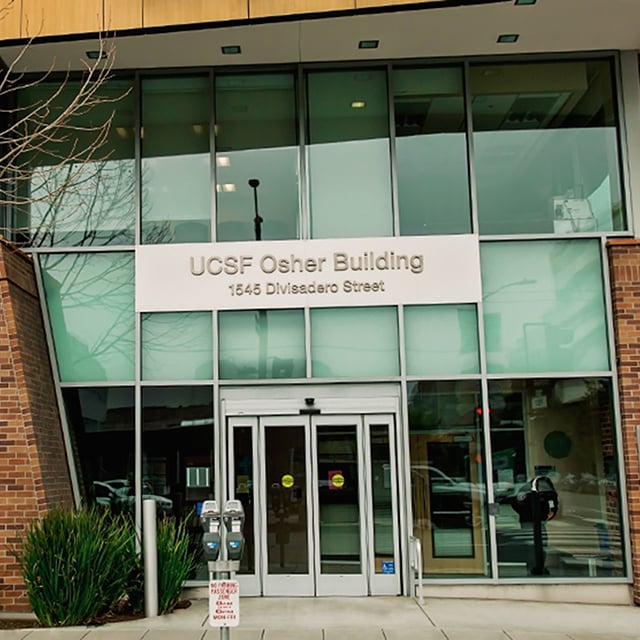
Osher Center for Integrative Health
 2
2






